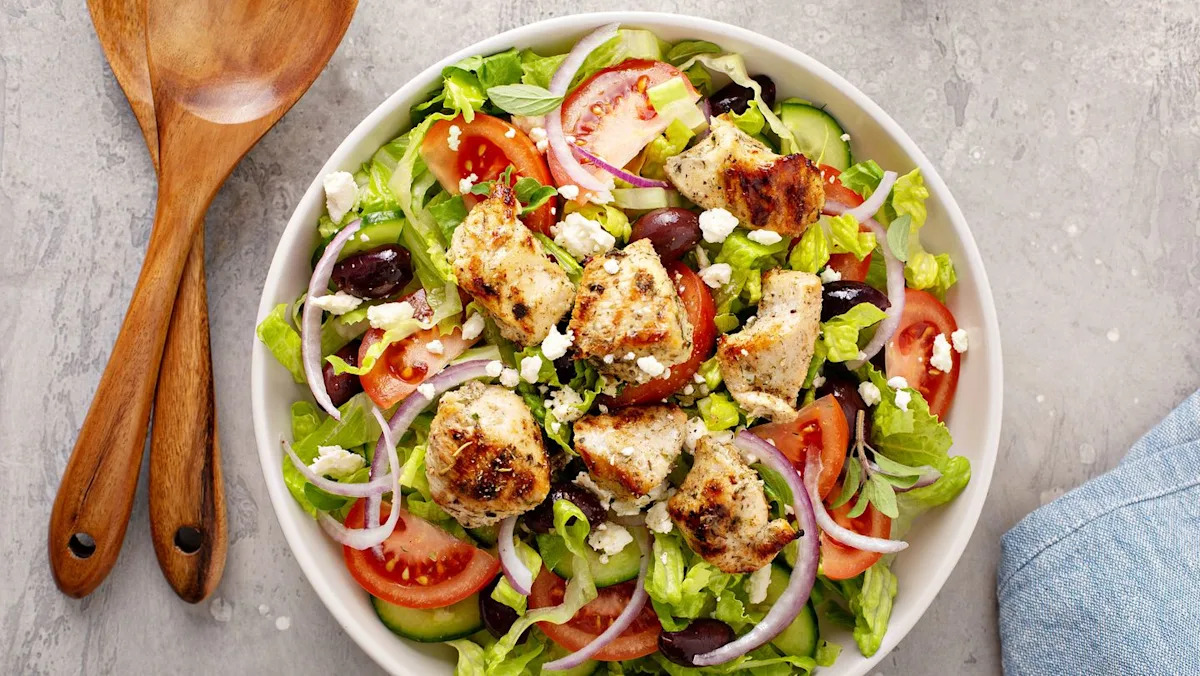“Hearst Magazines and Yahoo may earn commission or revenue on some items through these links.”
What’s found in each cell of your body, builds your bones, maintains your muscles, and keeps your skin looking fine? Dietary protein. It’s vitally important to consume enough of this good stuff every single day.
Why is protein so important? Protein is a macronutrient that creates the enzymes that act as fuel for essential chemical functions in your body. It also powers hemoglobin, which carries oxygen through your blood. On top of that, recent research has shown that protein can help boost endurance during strenuous exercise.
“Protein is a building block of every cell in the body,” says Marisa Moore, MBA, RDN, LD, a registered dietitian nutritionist in Atlanta. “Getting adequate daily protein is essential for a number of metabolic processes, from hormone creation to tissue growth and development.”
Amino acids are the core ingredients that make protein, and they aren’t stored in your body. This is why you need to get sufficient protein from the food you eat. Protein consists of 20 total amino acids; your body can make 11 of them (these are considered “nonessential”). The remaining 9 amino acids are considered “essential,” and you only get these through nutrition.
Getting enough protein is a hot TikTok topic, but you want to do it in the healthiest way possible. “Protein is not just a buzzword or trend,” says Dawn Jackson Blatner, R.D.N., C.S.S.D., a nutritionist in Chicago. “It’s critical for muscle repair, immune function, and metabolic health.” Read on to learn whether you need to get more, and which protein-rich foods to focus on.
How much protein do you need?
The recommended daily allowance (RDA) is 0.8 grams of protein per kilogram of body weight, or 0.36 grams per pound. This means that a woman who’s 50 years old and weighs 140 pounds should aim for at least 43 grams of protein per day. This is just one calculation, though, and it’s the minimum amount needed to prevent a protein deficiency. It’s important to check with your healthcare provider to find out what amount of protein you specifically need because you might actually benefit from consuming more than that.
“People who may need more than the general guidelines include those who are active, for muscle recovery and performance,” says Blatner. She adds that you may also need more protein if you’re 40 or over and have sarcopenia (muscle loss); you’re on a weight loss plan, need to feel fuller, and need to maintain your muscle mass; you’re on weight loss medication, like GLP-1s, to reduce loss of muscle mass; you’re pregnant or breastfeeding; or you’re recovering from an illness, surgery, or injury.
You don’t want to go overboard and eat too much protein, though. A new study found that high amounts of protein can cause health issues like kidney damage — again, play it safe and follow your physician’s advice.
Healthiest high-protein foods?
The US Department of Agriculture (USDA) has issued an extensive list of protein food sources that you can refer to for their exact protein amounts, which is really handy for meal planning. However, the USDA specifically recommends the following groups of high protein foods because they are lean and/or low-fat:
Meats and poultry: 93% lean ground beef, pork loin, skinless chicken breasts, and eggs
Seafood: salmon, anchovies, and trout (which are all high in omega-3 fatty acids and low in methylmercury)
Plant-based: legumes, nuts, seeds, and soy products
Signs you need more protein
Of course, you can’t truly know if you have a protein deficiency without talking to a health care professional, but these are some signs that your body might need a protein boost.
You eat, but don’t feel full.
“Excessive hunger shortly after eating could be a sign that you are not getting enough protein at meals,” explains Moore. “Protein is satiating. You can attest to this if you’ve ever had an omelet or tofu scramble for breakfast versus a pastry.”
Moving around leaves you exhausted.
When you lack sufficient protein, “you feel weak or lose muscle despite exercising,” says Blatner. “Protein supports growth, recovery, and maintenance of muscle, especially after workouts or injury.” Also, your blood sugar can dip after exercise, making you tired or weak. “Protein slows down digestion, which can keep blood sugar levels more stable,” Blatner adds.
Your muscles are vanishing.
If you skimp on protein, over time you might notice muscle loss as your body breaks down protein from muscle to carry out other necessary processes,” says Moore. This can lead to symptoms like lack of strength and energy as well as problems with mobility. Your metabolism can slow down if you lose muscle due to a protein deficiency, too.
You don’t look like yourself.
“You might notice your hair thinning, brittle nails, and skin issues,” says Blatner. This is because your hair, skin, and nails are mainly made up of protein. If you notice shedding strands, nail breaks, dry or peeling skin, rashes, or cuts, scrapes, and pimples that aren’t healing, talk to your doctor.
You’re getting sick more often.
“Poor protein intake may also negatively affect your immune system, since it’s the key component of antibodies,” says Moore. This means you’re more likely to catch colds, flu, COVID, and more viruses — not fun. Upping your consumption can prevent this. “Protein powers antibodies, enzymes, and immune cells that help you fight off illness and stay strong,” says Blatner.
The bottom line
Not eating enough protein can cause a whole host of health problems–but the problem is easy to fix. Protein-rich foods are delicious and simple to work into your day. Take a step back, look at your big nutritional picture, and make changes if you need to–you’ll feel so much better!
You Might Also Like

